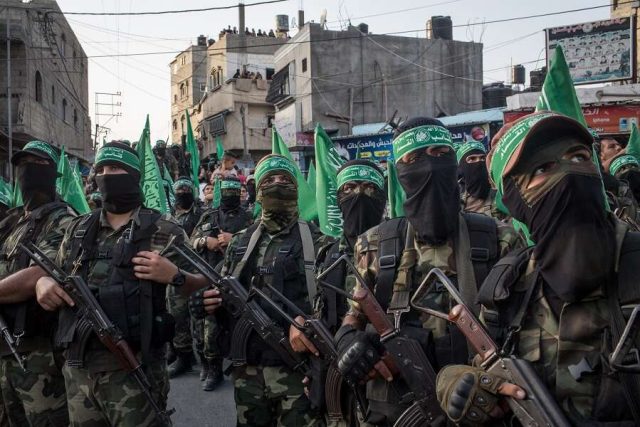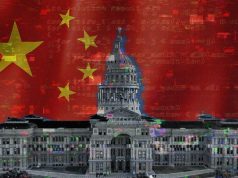By Moshe Sporn
Since the Islamic Revolution in 1979, Iran has become a central force in destabilizing the Middle East. The extremist Islamic regime that emerged after the fall of the pro-Western Shah changed the regional balance of power, leading not only to Iran’s distancing from the West but also to the spread of a radical Shiite ideology throughout the region. The leaders of the Islamic Revolution sought to export the revolution to other Muslim countries, solidifying Iran’s position as a leading force in the struggle against Western powers. Iran poses a threat not only because of its ideology but also due to its nuclear ambitions. The Iranian nuclear program, which was exposed in the early 2000s, has become one of the central concerns of the West in recent decades. The fear is that Iran, in its quest to obtain nuclear weapons, will become an uncontainable force, upsetting the regional balance of power and leading to the collapse of efforts to achieve stability in the Middle East.
Strategically, Iran has successfully infiltrated neighboring countries, including Lebanon, Syria, Iraq, and Yemen. Through organizations such as Hezbollah in Lebanon and the Houthis in Yemen, Iran has created a network of pro-Iranian militias whose goal is to undermine Sunni regimes and expand Iran’s geopolitical influence.
Historical Comparison: The Failure to Confront the Nazis
The Western failure to confront Iran can be compared to the failure to stop Nazi Germany in previous decades. In the 1930s, European policy focused on appeasing Germany and avoiding direct military confrontation, even when the clear signs of extremism were already on the table. Countries like Britain and France adopted a policy of appeasement, hoping it would curb Germany’s expansionist ambitions. This policy, which culminated in the famous Munich Agreement of 1938, ultimately failed to prevent the outbreak of World War II, which led to massive destruction.
The policy toward Iran appears similar in certain ways. Here too, Western countries have refrained from taking a firm stand against Iran’s behavior due to fears of military escalation. For example, despite repeated warnings from Israel and other Arab nations, the U.S. and Europe have focused on imposing economic sanctions on Iran. While these sanctions have hurt Iran’s economy, they have not succeeded in stopping the development of Iran’s nuclear program. The nuclear agreement signed between Iran and the world powers in 2015 (the JCPOA) was intended to curb Iran’s nuclear ambitions, but in practice, it granted Iran a certain level of legitimacy on the international stage while providing temporary relief from sanctions. Opponents of the agreement, particularly Israel, argued that it did not solve the nuclear problem in the long term but merely delayed it, ignoring the fundamental issue of Iran’s regional expansion through its proxies.
Reasons for the Failure of Western Policy
There are several reasons for the failure of Western policy to prevent the rise of radical forces in Iran. One of them is the belief that economic sanctions would suffice. The West saw economic sanctions as a key tool to apply pressure on the Iranian regime. However, reality has shown that despite the damage to Iran’s economy, the Islamic regime has maintained its grip on power and continued to develop its nuclear programs. Research shows that economic sanctions are not always an effective tool for regime change, especially when a strong ideology drives the leaders to persist in their goals.
Another factor is the lack of coordination between world powers. The West has failed to create a clear consensus on how to deal with Iran. While the U.S. took a tougher stance under the Trump administration, the European Union sought diplomatic solutions that would lead to agreements with Iran. This lack of unity has prevented the West from implementing a firm and comprehensive policy.
Moreover, Iran has taken advantage of the chaos in countries like Iraq, Syria, and Yemen following the “Arab Spring” to strengthen its position in these nations. Its support for militias and proxy forces across the region has made Iran a central player influencing internal dynamics and regional conflicts.
The focus on global terrorism rather than regional threats also contributed to the failure. After the September 11, 2001, attacks, the West directed its attention to fighting global terrorism and combating groups like al-Qaeda and ISIS. Iran, perceived as a potential rival to these Sunni extremist groups, was not at the top of the agenda. This created a situation where the West, while fighting terrorism, underestimated the ongoing threat posed by Iran.
Could the West Have Acted Differently?
In retrospect, one could argue that Western nations should have taken other steps to prevent Iran’s rise. One of the main criticisms is that the West failed to take military action in time to curb Iran’s influence. A clear example is Hezbollah’s expansion in Lebanon. Supported directly by Iran, Hezbollah has become the strongest military force in the country, representing one of the West’s biggest missed opportunities. Gulf states, led by Saudi Arabia, viewed Iran as an existential threat. Regional alliances with these countries could have provided a platform for joint action to curb Iranian influence. Israel, under the Abraham Accords, succeeded in establishing diplomatic relations with these countries, but the West was slower to act in this direction.
The crisis in Syria and Iraq left a power vacuum that the West was slow to fill. Iran, on the other hand, seized the opportunity and intervened directly in the conflicts, supporting Assad’s army and becoming a major player in the Syrian arena. A clearer Western policy, with support for moderate forces and limiting Iranian expansion, could have changed the picture in the region.
The failure to prevent Iran’s rise as a radical power is not new in the history of Western policy in the Middle East. Another example is the failure of the West to confront the rise of Hamas in Gaza. Here too, the West preferred to focus on efforts to achieve peace agreements rather than addressing the root cause of religious and radical extremism. Hamas, like Hezbollah, has managed to consolidate its control over the territory, gaining legitimacy as the Western world avoided decisive action.
Strategic Steps Required
Looking ahead, the West needs to develop a clearer policy toward Iran and radical forces in the Middle East. Several strategic steps could improve the situation and halt Iranian expansion. Limited military action may be necessary. The West may need to take focused military action in key strategic areas to prevent further Iranian expansion in the region. Such action would need to be well-coordinated with regional countries and based on precise intelligence. Additionally, the West can strengthen its support for opposition forces within Iran itself to destabilize the regime from within. Iran is facing internal economic crises and growing social pressure, which the West could leverage to promote regime change.
Cooperation with Gulf states and other moderate Arab countries could serve as a counterweight to Iranian influence. Strong diplomatic and economic alliances could help create a unified front against Iran and its proxies in the region. Furthermore, the West must invest more in intelligence and cybersecurity to closely monitor developments in Iran’s nuclear program. Cyber operations could serve as a key tool to halt technological advancements that threaten global stability.
The West has failed to prevent the rise of radical forces in Iran and the Middle East for several key reasons: an over-reliance on economic sanctions, a lack of coordination among world powers, a reluctance to use military force, and Iran’s exploitation of regional chaos. Today, Iran’s influence remains strong and continues to pose a threat to regional and global stability. While diplomatic and military measures remain available, significant changes in Western policy are required to curb Iranian expansion and prevent further escalation.
____________________________________________



